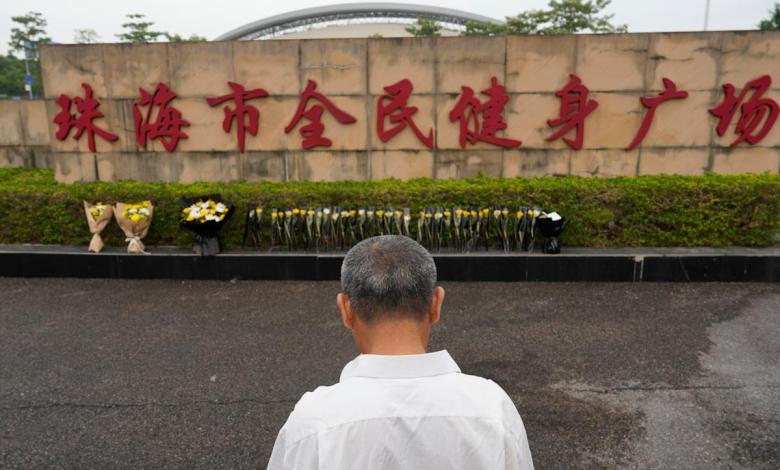China investigates personal disputes after mass killings. Many fear further infringements on freedoms

BANGKOK (AP) — The order came from the top.
Chinese leader Xi Jinping hopes the recent mass killings that shocked the country will not happen again. He ordered local governments to prevent “extreme situations” in the future.
Attacks in which drivers mow down walkers or knife-wielding attackers stab multiple victims are not new in China. But the latest surge is raising eyebrows.
Local officials soon vowed to investigate a variety of personal disputes that could spark aggression, from marital problems to inheritance disputes.
News you can trust and daily fun, right in your inbox
Experience it firsthand — The Yodel is your go-to source for daily news, entertainment and light-hearted stories.
However, the growing intrusion into people’s private lives has raised concerns at a time when the Chinese government has tightened its control over all social and political aspects of the East Asian country.
“Retaliation for social crimes”
This is how the Chinese define these attacks.
There were three incidents in November alone: a man injured 30 people at a primary school in Hunan province after suffering investment losses. A student who failed an exam stabbed eight people at a vocational school in Yixing city. The maximum number of victims, 35, began when a man opened fire on a crowd in the southern city of Zhuhai, allegedly upset about a divorce.
Experts say that while identifying the exact motivations for such attacks can be difficult, there is an overwhelming sense of pressure in Chinese society.
“On the surface, it seems like there are individual factors, but we see there are common connections,” said Wu Qiang, a former political science professor. “In my personal opinion, everyone has a feeling of unfairness at this stage. They deeply feel that this society is very unfair, and they can’t stand it anymore.
Since 2015, Chinese police have targeted human rights lawyers and nonprofits, imprisoning many while keeping others under tight surveillance, effectively dismantling a civil society that was active in the early 2000s and into the 2010s.
Wu was fired from Tsinghua University after conducting fieldwork during the 2014 Occupy Central protests in Hong Kong. He said police have been stationed outside his home in Beijing since last year.
A tight cover-up of the killings
Ten years ago, the media could report on events as they unfolded and even share the names of suspects. Today, this is nearly impossible.
In the 24 hours before the Zhuhai death toll was announced, state censorship agencies quickly deleted all videos and eyewitness accounts of the incident shared online. In the Hunan elementary school attack, the authorities did not announce the number of injured until nearly a month after the court verdict.
Other countries also record statistics on violent attacks; notably, there have been 38 mass killings in the United States so far this year, according to an Associated Press database. But in China, a lack of public data makes deciphering trends in mass killings difficult.
“From 2000 to 2010, there was a lot of discussion about how we could help these people through structural changes to reduce these risks, but that’s gone now,” said Rose Luqiu, a well-known former reporter at state-owned Phoenix TV. University associate professor.
Minqiu believes the government may be enforcing censorship, arguing it would prevent imitators from imitating such criminal behavior.
“Things are only going to get stricter,” she predicts. For the Chinese government, “the only response is to tighten controls.”
Officials vow to identify hidden risks
According to the official Xinhua News Agency, after the Zhuhai attack, Xi Jinping called on all localities to “strengthen risk prevention and control at the source, strictly prevent extreme incidents from occurring, and resolve conflicts and disputes in a timely manner.”
The Associated Press found at least a dozen notices from local governments, ranging from small towns to big cities, announcing response measures.
In eastern Anhui province, a ruling Communist Party leader visited a middle school, a local police station and even a warehouse at a chemical plant, urging workers to “identify any hidden dangers.” He said they must “thoroughly and meticulously investigate and resolve conflicts and disputes,” including those in families, marriages and neighborhood relationships.
Police and prosecutors issued similar statements.
The Ministry of Justice has pledged to reduce conflict by investigating inheritance, housing, land and wage disputes.
However, many have expressed concerns about how such controversies would be discovered.
“I think we are at the beginning of a vicious cycle,” said Lynette Ong, a professor at the University of Toronto and author of “Outsourced Repression: Everyday State Power in Contemporary China.” “If you nip conflict in the bud, you can imagine the system putting a lot of stress on schools, businesses and factories.”
The new announcement reminded Ong of China’s strict policies during the COVID-19 pandemic. Neighborhood committees, the lowest level of government, set up fences and barricades in front of buildings to control access and, in extreme cases, broke into homes to disinfect the apartments of people infected with the virus.
Eventually, people protested en masse.
“If we see unwise measures taken, we will encounter resistance, anger and dissatisfaction from the people, which will lead to a vicious cycle that will lead to more extreme measures,” she said.



